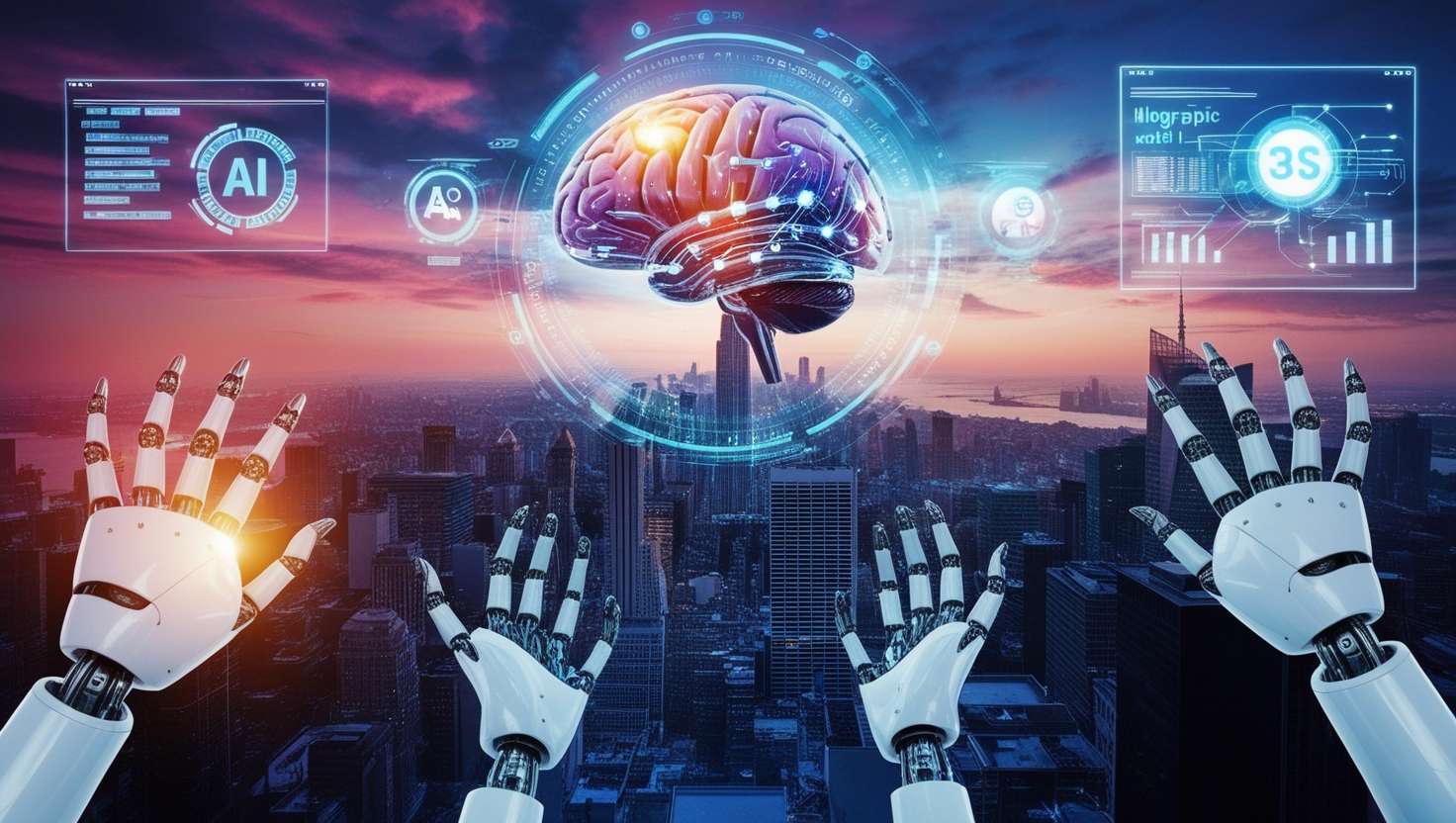Artificial Intelligence (AI) is now a big part of our daily lives, changing how we use technology. From smart home devices to personalized recommendations, AI is everywhere. This AI Revolution is reshaping our world in profound ways. But what is AI, and how is it changing our world?
Understanding AI Revolution
AI refers to machines that perform tasks that typically require human intelligence, such as seeing, hearing, making decisions, and understanding language.
AI in Daily Applications
Smart Homes
AI devices like Amazon’s Alexa and Google Home make home management easier. These devices can control lights, temperature, security systems, and order groceries. Imagine waking up to a home where the thermostat has already adjusted to your preferred morning temperature, and the coffee maker starts brewing your favorite blend.
Healthcare
AI is changing healthcare with better diagnostics and personalized medicine. AI can look at medical data to find conditions early and suggest treatments. For example, AI can help doctors find problems in X-rays or predict patient outcomes based on past data, leading to more accurate diagnoses and effective treatments.
Transportation
Self-driving cars are becoming real thanks to AI. Companies like Tesla are leading the way, making cars that can drive themselves and reduce accidents. These cars use AI to process data from sensors and cameras in real-time, making quick decisions to keep passengers safe. AI also helps manage traffic, making cities less congested.
Entertainment
Services like Netflix and Spotify use AI to recommend content based on what you like, making your entertainment experience better. AI studies your watching or listening habits to suggest movies, shows, and music you might enjoy, creating a personalized entertainment experience. This technology not only improves user satisfaction but also helps content creators reach their target audience more effectively.
Customer Service
Many businesses use AI chatbots to offer 24/7 customer support, improving response times and customer satisfaction. AI chatbots can answer a wide range of questions, from simple FAQs to complex issues, freeing up human agents to focus on more complicated problems. This leads to faster resolutions and happier customers.
AI in Finance
The financial sector is also changing because of AI. AI can study market trends and past data to make predictions and improve investment strategies. AI tools help banks spot fraudulent transactions in real-time, making banking safer. AI also provides personalized financial advice and automated customer service, making financial services easier to use.
AI in Education
Education is another area benefiting from AI. Smart tutoring systems can give students personalized learning experiences, adapting to their needs and pace. AI can also help teachers by grading assignments, identifying students who need extra help, and suggesting resources to enhance learning.
The Future of AI
As AI technology keeps improving, its impact on our lives will grow. Future advancements could lead to even smarter homes, better healthcare, and safer, more reliable self-driving cars. We can expect AI to play an increasingly important role in various industries, driving innovation and improving our quality of life.
In the realm of healthcare, AI could revolutionize diagnostics and personalized medicine, enabling doctors to provide more accurate treatments based on a patient’s unique genetic makeup. Predictive analytics powered by AI can help anticipate disease outbreaks and optimize resource allocation in hospitals.
In the business world, AI-driven automation and data analysis can streamline operations, enhance decision-making processes, and create more efficient supply chains. Retailers can leverage AI for inventory management, dynamic pricing, and customer service enhancements through chatbots and virtual assistants.
The education sector could benefit from AI through personalized learning experiences tailored to individual student needs, helping to close learning gaps and provide support where it’s most needed. AI can also assist educators by automating administrative tasks and providing insights into student performance.
As AI continues to evolve, ethical considerations and regulations will be crucial to ensure that its development and implementation are aligned with societal values and beneficial for all. Addressing concerns such as data privacy, algorithmic bias, and job displacement will be essential to harness the full potential of the AI revolution responsibly.





2 thoughts on “AI Revolution: Transforming Everyday Life for the Better”